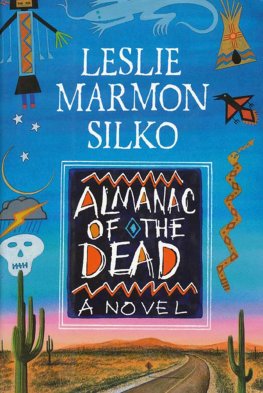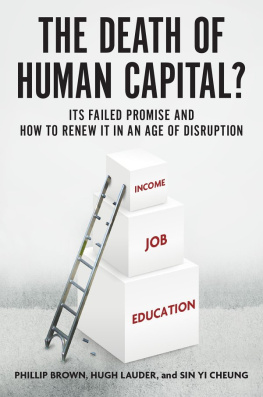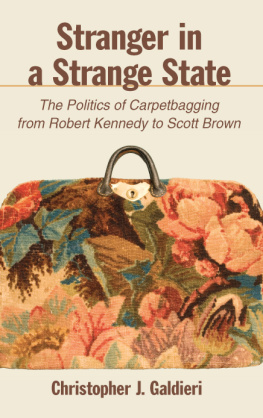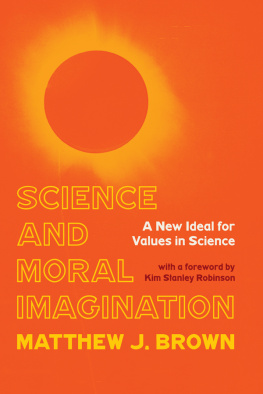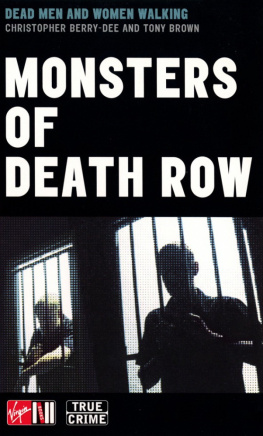Christopher Leslie Brown - Moral Capital
Here you can read online Christopher Leslie Brown - Moral Capital full text of the book (entire story) in english for free. Download pdf and epub, get meaning, cover and reviews about this ebook. year: 2006, publisher: UofNCarolina Press, genre: Politics. Description of the work, (preface) as well as reviews are available. Best literature library LitArk.com created for fans of good reading and offers a wide selection of genres:
Romance novel
Science fiction
Adventure
Detective
Science
History
Home and family
Prose
Art
Politics
Computer
Non-fiction
Religion
Business
Children
Humor
Choose a favorite category and find really read worthwhile books. Enjoy immersion in the world of imagination, feel the emotions of the characters or learn something new for yourself, make an fascinating discovery.

- Book:Moral Capital
- Author:
- Publisher:UofNCarolina Press
- Genre:
- Year:2006
- Rating:5 / 5
- Favourites:Add to favourites
- Your mark:
- 100
- 1
- 2
- 3
- 4
- 5
Moral Capital: summary, description and annotation
We offer to read an annotation, description, summary or preface (depends on what the author of the book "Moral Capital" wrote himself). If you haven't found the necessary information about the book — write in the comments, we will try to find it.
Moral Capital — read online for free the complete book (whole text) full work
Below is the text of the book, divided by pages. System saving the place of the last page read, allows you to conveniently read the book "Moral Capital" online for free, without having to search again every time where you left off. Put a bookmark, and you can go to the page where you finished reading at any time.
Font size:
Interval:
Bookmark:
Moral Capital
The Omohundro Institute of Early American History and Culture is sponsored jointly by the College of William and Mary and the Colonial Williamsburg Foundation. On November 15, 1996, the Institute adopted the present name in honor of a bequest from Malvern H. Omohundro, Jr.
2006 THE UNIVERSITY OF NORTH CAROLINA PRESS
All rights reserved
Manufactured in the United States of America
Library of Congress Cataloging-in-Publication Data
Brown, Christopher Leslie.
Moral capital : foundations of British abolitionism / Christopher
Leslie Brown.
p. cm.
Includes bibliographical references and index.
ISBN-13: 978-0-8078-3034-5 (cloth: alk. paper)
ISBN-10: 0-8078-3034-8 (cloth: alk. paper)
ISBN-13: 978-0-8078-5698-7 (pbk.: alk. paper)
ISBN-10: 0-8078-5698-3 (pbk.: alk. paper)
1. SlaveryGreat BritainHistory. 2. AbolitionistsGreat
BritainHistory. 3. LibertyGreat BritainHistory. 4. Great
BritainRace relations. 5. Great BritainForeign relations.
6. Great BritainPolitics and government. I. Omohundro Institute
of Early American History & Culture. II. Title.
HT1163.B76 2006
306.3620941dc22
2005031387
The paper in this book meets the guidelines for permanence and durability of the Committee on Production Guidelines for Book Longevity of the Council on Library Resources.
This volume received indirect support from an unrestricted book publication grant awarded to the Institute by the L. J. Skaggs and Mary C. Skaggs Foundation of Oakland, California.
cloth 10 09 08 07 06 5 4 3 2 1
paper 10 09 08 07 06 5 4 3 2 1
For my
mother and father,
Michael and Hilary,
with love
I have had the good fortune to work at five wonderful institutions during the last decadethe departments of history at Vanderbilt University, the College of William and Mary, New York University, The Johns Hopkins University, and Rutgers, The State University of New Jersey. Each afforded me the privilege (and it is a privilege) to practice the historical craftto research, to write, and to teach. So I am pleased to acknowledge first this most basic of debts to my current and former colleagues and students. More than a few of the ideas, arguments, and claims that appear in this volume developed directly from classroom conversations about the problem of slavery with the many outstanding students I have instructed at these schools. And more than a few of the insights arose unexpectedly from stray conversations with colleagues working on other places, other eras, and other problems. Without steady employment, without the intellectual stimulation provided by these fine institutions, Rutgers in particular, there would have been no book.
In preparing this study, I pursued traces of the abolitionist impulse through a variety of archives and record offices. For their assistance in assembling materials crucial to this book, and for calling my attention to materials I might otherwise have overlooked, I extend my thanks to the archivists at the Bedfordshire Record Office, the Bodleian Library (Oxford University), the Bristol Record Office, the British Library, the Center for Kentish Studies, the Durham Record Office, the Gloucestershire Record Office, the Historical Society of Pennsylvania, the Huntington Library, the Leicestershire Record Office, the Lambeth Palace Library, Library of the Society of Friends, the Manchester Central Library, the Public Record Office (London), Rhodes House Library, the Staffordshire Record Office, the William Andrews Clark Library, the William L. Clements Library, and the York Minster Library.
I first worked through the essentials of this subject while fulfilling the requirements for a D. Phil. at Balliol College, Oxford. After a brief period in government service, I returned to the project full time through the assistance of a two-year postdoctoral fellowship at the Omohundro Institute of Early American History and Culture, a fellowship funded by the National Endowment for the Humanities, the Colonial Williamsburg Foundation, and the College of William and Mary. Ronald Hoffman, and the rest of the Institute staff, have my enduring thanks for allowing me the time and the space to restructure the original study, extend its reach, and substantially deepen the research. A short-term fellowship at the Huntington Library in Pasadena, California, funded by the W. M. Keck Foundation allowed for an intensive study of the British pamphlets of the American Revolution, research that turned out to be essential. Most of the book was written between the summer of 1998 and the summer of 1999, during the year that I held the Raoul Wallenberg Fellowship at the Rutgers Center for Historical Analysis. A senior fellowship at the Gilder Lehrman Center for the Study of Slavery, Resistance, and Abolition two years later permitted a tying up of loose ends and a final round of revisions. I am pleased to offer my delayed thanks to the selection committees for these fellowships, who saw with me the need for a further look at Anglo-American antislavery in the eighteenth century.
Along the way, I have been fortunate to have wonderful teachers and mentors. At a formative stage, and in very different ways, David Brion Davis, Melvin Ely, Gary Nash, David Spadafora, and the late Robin W. Winks showed me why history matters and what good history looks like. I have tried to learn from their example, if I have not always matched it. At Oxford University, Joanna Innes helped me figure out what I was trying to do as I struggled through my first encounter with the archives. It is because of her that I did not give up on this endeavor long ago. At the Omohundro Institute, and then at The Johns Hopkins University, Philip Morgan demonstrated how to work with precision, discipline, and generosity, a model easier to admire than to emulate. Most of all, I owe a special debt to David Brion Davis and Seymour Drescher, both of whom have supported this project and its author from the very beginning, even as I have reached conclusions rather different from their magisterial works on the history of antislavery.
I have presented portions of the book in a variety of public symposia, colloquia, and seminars at the College of William and Mary, Columbia University, The Johns Hopkins University, New York University, Northwestern University, the University of Pittsburgh, Syracuse University, Vanderbilt University, and the University of Washington as well as at meetings of the American Society for Eighteenth Century Studies, the American Studies Association, the North American Conference on British Studies, the International Seminar on the History of the Atlantic World, the American Historical Association, and the Institute of United States Studies in England. I thank the audiences at these gatherings for their helpful observations and suggestions, very many of which have influenced the final product. A preliminary version of Chapter 4, Empire without Slaves: British Concepts of Emancipation in the Age of the American Revolution, first appeared in 1999 as an article under the same title in the William and Mary Quarterly (3d Ser., LXI, 273306). The remaining portions of this book appear now in print for the first time.
The path to publication took more turns than I could have imagined, although I know the book is better for the journey. At the Omohundro Institute, editor of publications Fredrika J. Teute found promise in the original project and helped crystallize its message, particularly in the early stages, as I worked to understand what this book was about. I am pleased to have the book appear under the Institutes imprint. My copy editor Laura Jones Dooley patiently and painstakingly helped finalize the manuscript for the press, no small task when working with an author who likes to change his mind. Ginny Montijo orchestrated the very last stages of the process with characteristic professionalism and good cheer. Robert Whelan, my research assistant, tracked down key references as the manuscript approached completion. Caleb McDaniel of The Johns Hopkins University offered typically meticulous and efficient help in compiling the bibliography.
Font size:
Interval:
Bookmark:
Similar books «Moral Capital»
Look at similar books to Moral Capital. We have selected literature similar in name and meaning in the hope of providing readers with more options to find new, interesting, not yet read works.
Discussion, reviews of the book Moral Capital and just readers' own opinions. Leave your comments, write what you think about the work, its meaning or the main characters. Specify what exactly you liked and what you didn't like, and why you think so.

